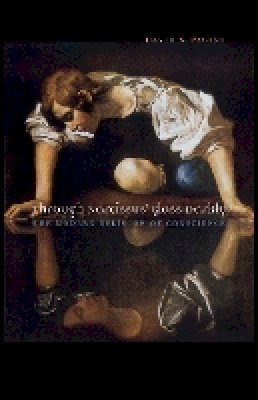10%OFF

Stock image for illustration purposes only - book cover, edition or condition may vary.
Through Narcissus´ Glass Darkly: The Modern Religion of Conscience
David S. Pacini
€ 37.99
€ 34.32
FREE Delivery in Ireland
Description for Through Narcissus´ Glass Darkly: The Modern Religion of Conscience
Paperback. Presents a genealogy and critique of the ideal of conscience in modern philosophical theology, particularly in the writings of Hobbes, Rousseau, and Kant. This title shows why the apparently emancipatory rejection of heteronomy compromised the ideal of self-legislated freedom. Num Pages: 222 pages, 7 illustrations. BIC Classification: HRAB; HRCM. Category: (P) Professional & Vocational. Dimension: 3895 x 5830 x 20. Weight in Grams: 309.
Through Narcissus' Glass Darkly presents a genealogy and critique of the ideal of conscience in modern philosophical theology, particularly in the writings of Hobbes, Rousseau, and Kant. It shows why the apparently emancipatory rejection of heteronomy compromised the ideal of self-legislated freedom.
David Pacini argues that, despite its advocacy of the popular political value of common understanding, the modern religion of conscience has become the Achilles' heel of both Kantian and Freudian thought. It is doomed to succumb to its own fundamentally narcissistic or self-relating orientation. Avoiding the tenacious cliché that the luminaries of modern philosophy simply replaced ... Read more
Product Details
Format
Paperback
Publication date
2012
Publisher
Fordham University Press United States
Number of pages
222
Condition
New
Number of Pages
222
Place of Publication
New York, United States
ISBN
9780823229659
SKU
V9780823229659
Shipping Time
Usually ships in 7 to 11 working days
Ref
99-1
About David S. Pacini
David S. Pacini is Associate Professor of Historical Theology at Emory University.
Reviews for Through Narcissus´ Glass Darkly: The Modern Religion of Conscience
"Pacini's book is, at one level, a critique of modernity, and it deserves an honored place among some of the best recent critiques. More fundamentally, his book illuminates an idea whose inner workings call for a rare ability to think theologically in the context of a modern philosophical narrative. The 'religion' in a religion of conscience defies the usual distinctions ... Read more
